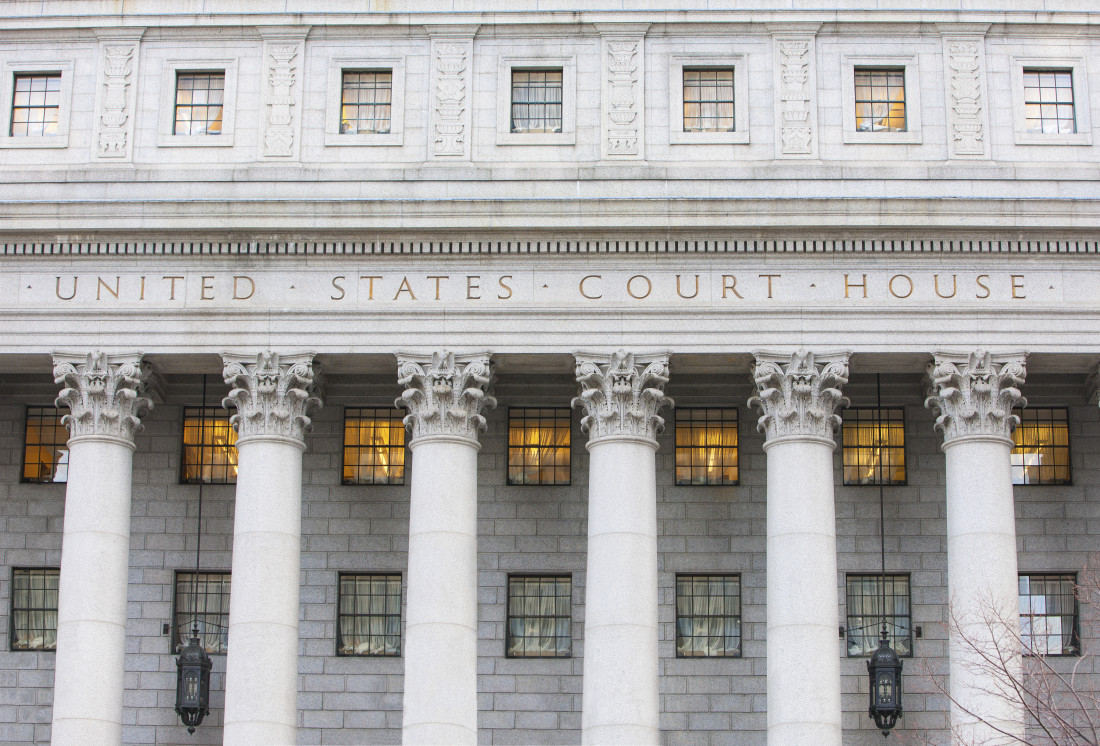Litigation Law Alert - U.S. Supreme Court rules Booking.com is not generic

Is a mark styled “generic.com” always generic? The U.S. Supreme Court says no. The key question turns on what the mark means to the consumer. United States Patent and Trademark Office v. Booking.com, 591 U. S. ____ No. 19-46, (June 30, 2020).
Booking.com is a digital travel company that provides online hotel reservation services. The company applied for the trademark BOOKING.COM, which is also the domain name of its website. The U. S. Patent and Trademark Office (USPTO) refused registration on the basis that the mark is generic for online hotel reservation services.
Booking.com sought judicial review by the U.S. District Court for the Eastern District of Virginia through Section 21 of the Lanham Act, which allowed the introduction of new evidence. 15 U.S.C. 1071. The District Court, relying in significant part on the new consumer perception evidence, held that BOOKING.COM was not generic, because the consuming public “primarily understands that BOOKING.COM refers to services available at that domain name.”
The USPTO appealed to the Court of Appeals for the Fourth Circuit, which affirmed and further rejected the USPTO’s contention that, as a rule, combining a generic term with “.com” will always yield a generic mark.
The USPTO then sought review by the US. Supreme Court. In the opinion written by Justice Ginsburg, the Supreme Court (8-1) affirmed the lower court’s decision that BOOKING.COM was not generic. The Court held that “a term styled ‘generic.com’ is a generic name for a class of goods or services only if the term has that meaning to consumers.”
The USPTO argued that when a generic term is combined with a generic Internet-domain name suffix like “.com,” the resulting combination is always generic. It cited the Goodyear case, in which the Court had ruled that a generic corporate designation, like company, added to a generic term does not confer trademark eligibility. Goodyear’s India Rubber Glove Mfg. Co. v. Goodyear Rubber Co., 128 U. S. 598 (1888). The Court in the Booking.com case rejected this blanket rule and explained that for a compound term, the distinctiveness inquiry is dependent on the term’s meaning as a whole. The inquiry focuses on the relevant meaning of a term to consumers. The Court clarified that the holding in Goodyear simply had stated that if two or more generic elements taken together yield no additional meaning to consumers, then the term is still generic.
The USPTO also argued that should BOOKING.COM be allowed to register, the registrant would have a monopoly on BOOKING marks. The Court dismissed this argument, stating that there are many marks contain generic or highly descriptive words. Consumers are aware that other uses of generic elements may emanate from different sources, noting that Booking.com conceded that “Booking.com” would be a “weak” mark. The USPTO further argued that an exclusive domain name should be enough protection for the term BOOKING.COM. The Court dismissed this argument, stating that having an exclusive domain name does not disqualify the mark from federal registration.
The District Court also had determined that “Booking.com” is descriptive and had acquired secondary meaning as to hotel-reservation services. Since the USPTO appealed only the determination that “Booking.com” was not generic, the Court did not consider this issue and affirmed the decision that Booking.com’s mark otherwise meets the distinctiveness requirement for registration.
Justice Breyer dissented on various grounds. He asserted that the Goodyear principle is sound and should apply in the novel context of domain names. In his view, appending “.com” to a generic term yields no meaning beyond that of its constituent parts, although he noted that there could be rare exceptions, such as one cited by the majority—tennis.net. He stated that, even if a survey supports consumer association of a domain name with a specific entity, surveys have limited value in separating generic from descriptive terms.
He also said that protection of such marks threatens to have serious anticompetitive consequences in the online marketplace by conferring automatic exclusivity for a proliferation of easy-to-remember generic names. Furthermore, he concluded that the right of the owner to exclude others from using similar domain names will inhibit free competition because the threat of costly litigation will no doubt have a chilling effect on those who might want to use such names.
For further information, contact Reema Pangarkar or your CLL attorney.
Reema Pangarkar

Associate
Email | 212.790.9229
Reema’s practice focuses on trademark prosecution, clearance, and maintenance, as well as general intellectual property matters.